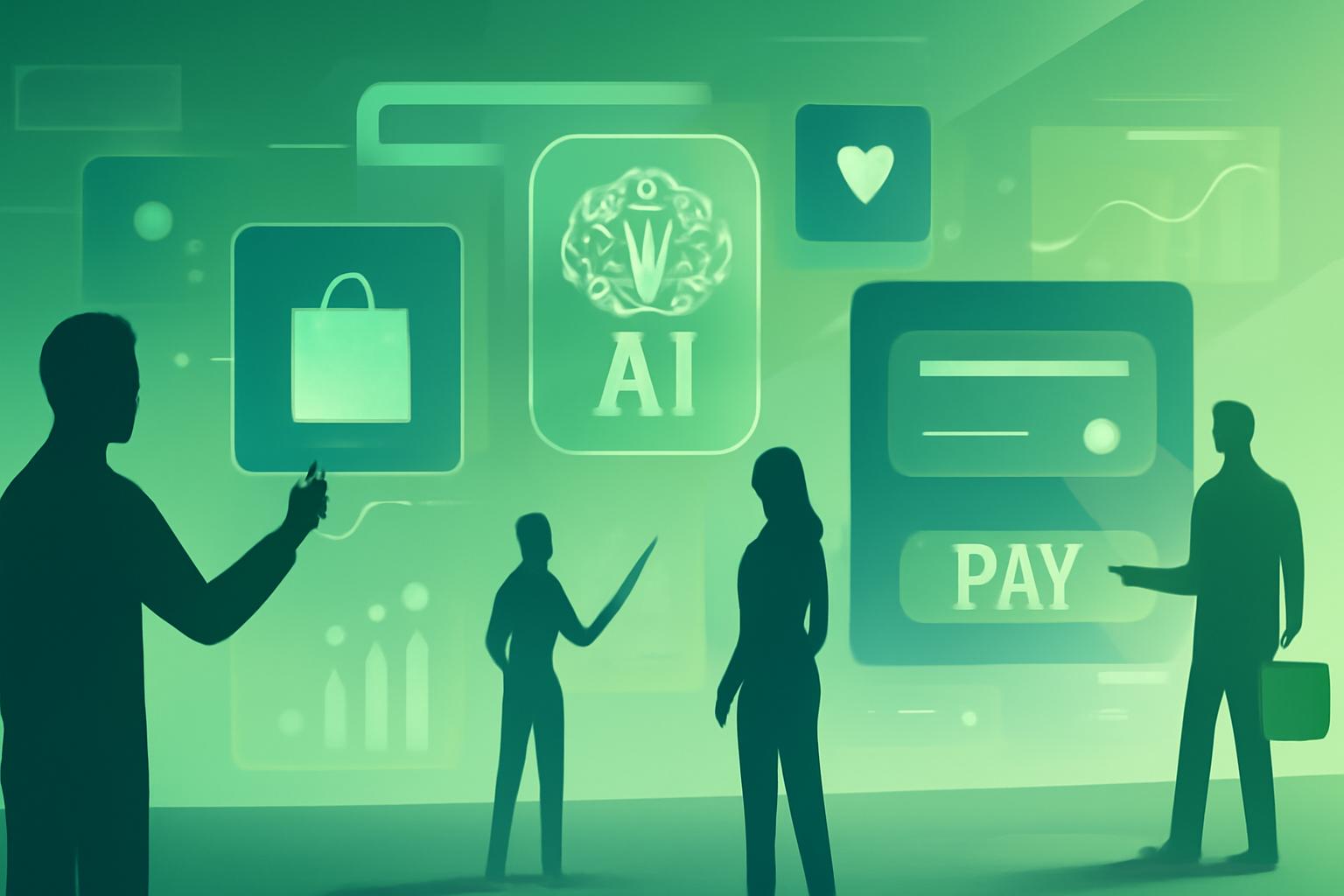OpenAI Accelerates AI-Driven Commerce with ChatGPT App Ecosystem
OpenAI’s annual developer event showcased a pivotal evolution in AI integration with the introduction of apps directly embedded within ChatGPT. Demonstrations highlighted seamless interactions with third-party services such as Spotify and Figma, all accessible without leaving the ChatGPT interface. This marks a significant step toward an AI-first internet, where intelligent agents query data and execute commands autonomously. Complementing this, OpenAI recently launched Instant Checkout, a payment infrastructure designed to facilitate one-time purchases through major e-commerce platforms including Shopify, Etsy, and Stripe. Together, these innovations establish ChatGPT not only as an information hub but also as a transactional platform for buyers and sellers.Building a Comprehensive AI Commerce Ecosystem
OpenAI’s strategy encompasses a broad spectrum of commerce applications. Pending partnerships reveal ambitions for ChatGPT to facilitate services such as booking rides via Uber, planning travel through Expedia, arranging home repairs with Thumbtack, or ordering groceries and meals from Instacart and DoorDash respectively. This positions ChatGPT as a centralized gateway for discretionary spending across diverse retail categories. This integrated commerce model suggests substantial revenue potential beyond subscription fees. Though exact financial arrangements remain undisclosed, OpenAI is well-positioned to capture a share of transaction volumes, functioning as a super-aggregator that channels customers to retailers while leveraging rich user data to optimize recommendations and conversion rates.“ChatGPT becomes a super-aggregator, funneling customers to retailers and providing an entry point for extensive commerce expansion.”
Ben Thompson, Industry AnalystCompetitive Dynamics in AI-Assisted Shopping
OpenAI is not alone in pursuing AI-driven commerce. On the same day as OpenAI’s announcements, Adobe published a report forecasting AI-assisted shopping as a dominant trend for the upcoming holiday season, with consumers increasingly relying on chatbots over traditional search engines. Mastercard also identified agentic commerce as an emerging competitive domain within financial services. Google is advancing its own agentic commerce protocol, AP2, which offers a broader scope but currently trails OpenAI’s momentum. AP2 enables proactive agent-initiated purchases, such as automatic ticket buying or flight bookings triggered by price thresholds, hinting at a future where AI agents negotiate and bundle purchases autonomously.Challenges and Prospects for Consumer Adoption
Despite the technological advances, the key uncertainty remains consumer acceptance. While industry stakeholders recognize the benefits of agentic shopping, user engagement beyond straightforward product searches has been limited. Fully functional agentic shopping solutions are still months away from widespread availability, leaving the market response an open question. The success of AI-driven commerce hinges on users’ willingness to entrust purchasing decisions to AI agents and retailers’ readiness to participate in this new transactional paradigm. If embraced, this innovation could transform retail ecosystems fundamentally.FinOracleAI — Market View
OpenAI’s integration of apps and payment processing within ChatGPT marks a watershed moment for AI-driven commerce, positioning the company as a formidable player in digital retail. This development creates new revenue streams and redefines customer engagement through AI super-aggregation.- Opportunities: Expansion of AI-assisted shopping could drive significant transaction volume and recurring revenue beyond subscriptions.
- Risks: Consumer adoption remains uncertain; privacy and data security concerns may limit usage.
- Competitive Landscape: Rival initiatives by Google, Adobe, and Mastercard intensify the race for market dominance.
- Technological Impact: Agentic commerce may transform purchasing behavior, enabling automated and negotiated transactions.













